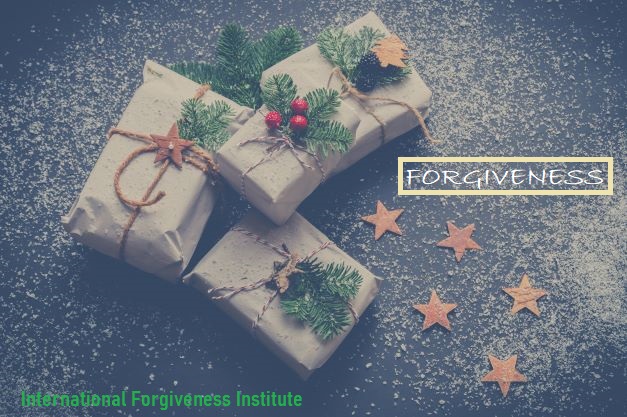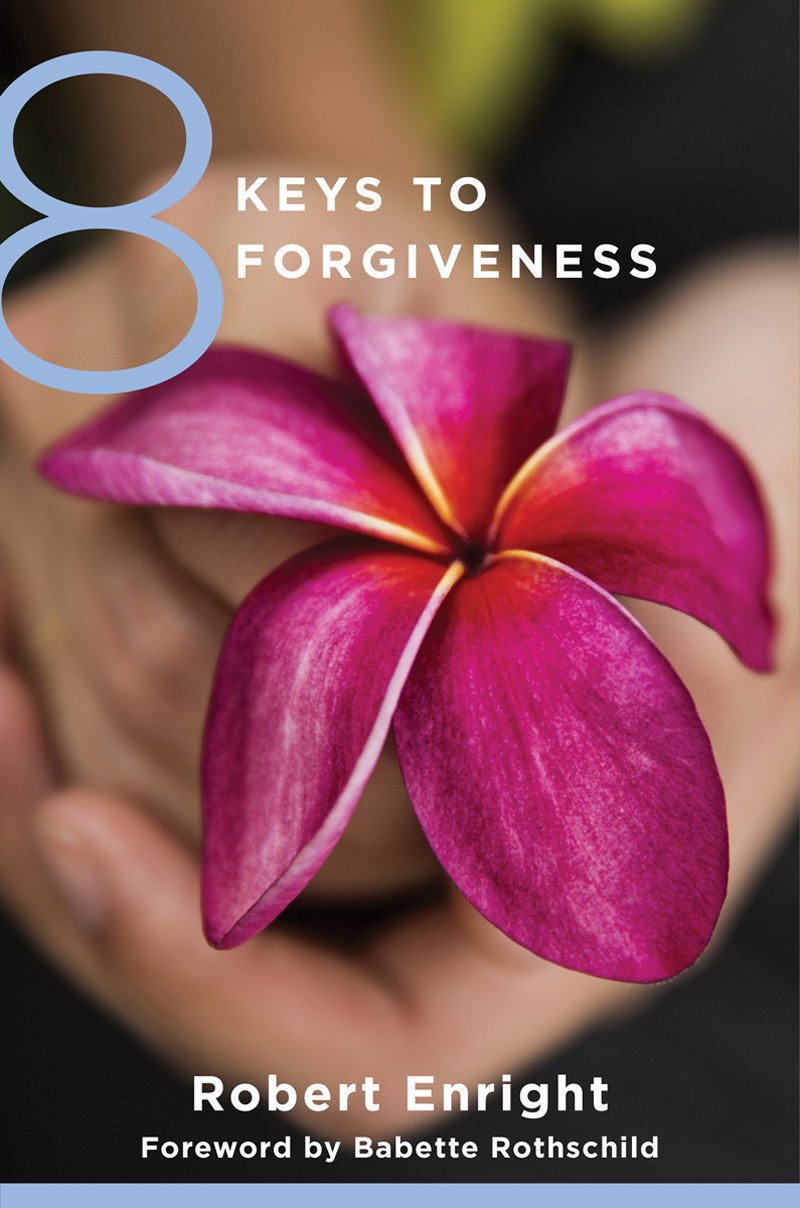Tagged: “break free from the past”
FORGIVENESS IS A GIFT
Over the past 20 years, Joe Daguanno has climbed the corporate ladder at the Mid-West Family of Companies to become Chief Profit Strategist – Partner. That means he is a media, branding, and advertising professional who excels at revenue generation. He’s also a pretty good, and consistent, blogger.
What’s up in the Cosmos? is the title of Daguanno’s personal blog that he has been writing for the past dozen years. His recent Dec. 20 blog post was titled “The Gift of Forgiveness.” Here’s a brief excerpt:

Joe Daguanno, Chief Profit Strategist – Partner, Mid-West Family of Companies
Forgiveness is a gift. It’s love. It’s generosity. It’s mercy.
As we give this gift, we heal.
Holding a grudge acts like a tourniquet to the flow of healing. It closes the heart and the wounds remain open.
Real forgiveness takes strength. It takes courage. It takes honesty. It takes time.
But it’s worth it.
So very much.
Daguanno’s depth of perception about forgiveness developed several years ago when he met Dr. Robert Enright, forgiveness research pioneer and founder of the International Forgiveness Institute (IFI). That encounter led Daguanno to spearhead development of a series of public service announcements that were broadcast hundreds of time on Wisconsin Public Radio and by numerous commercial radio stations throughout the Midwest—all at no cost to the IFI.
As his title references, Daguanno is a partner in Mid-West Family of Companies—an alliance of more than 40 radio stations covering 8 separate geographic markets–all assembled by the late Dr. William Walker and his son Thomas Walker. Dr. Walker co-founded the IFI along with Dr. Enright in 1995. Thomas Walker continues to provide the IFI with both financial and hands-on support through the Walker Family Trust.
Read Daguanno’s full Dec. 20 blog: “The Gift of Forgiveness.”
Consider Giving the Gift of Forgiveness This Year
In the season of giving, one of the most beautiful gifts you might consider giving is forgiveness. The ideas that forgiving is a gift to those who have hurt you sometimes gets forgiveness into trouble. In other words, people think it is irrational to consider offering a gift to those who are unfair. The typical reasons for this resistance to forgiveness as gift-giving are these:
- It is dangerous to reach out to those who act unfairly because I am open to further abuse.
- My gift-giving might be a signal to the misbehaving others that their actions are acceptable, which they are not.
- Gift-giving to those who acted unfairly seems counter-intuitive to my own healing. I need to move on and not focus on this other person.
 The ideas above can be countered this way: With regard to (A), you do not necessarily have to reconcile with an unrepentant person who keeps harming you. You can give your gift from a distance, such as a kind word about the person to others or an email so that you can keep your distance if this is prudent to do so. With regard to (B), you can forgive and ask for justice. Forgiving never means that the other just goes ahead as usual with hurtful behaviors. In other words, if you decide to forgive, you can and should ask for fairness from the other person. With regard to (C), forgiveness will seem counter-intuitive as goodness to those who are not good to you only if your focus is entirely on justice or a fair solution to the problem. If you begin to see that mercy (in the form of forgiving) and justice can and should exist side-by-side, then perhaps this idea of forgiveness as a contradiction or as inappropriate or as somehow odd may lessen in you.
The ideas above can be countered this way: With regard to (A), you do not necessarily have to reconcile with an unrepentant person who keeps harming you. You can give your gift from a distance, such as a kind word about the person to others or an email so that you can keep your distance if this is prudent to do so. With regard to (B), you can forgive and ask for justice. Forgiving never means that the other just goes ahead as usual with hurtful behaviors. In other words, if you decide to forgive, you can and should ask for fairness from the other person. With regard to (C), forgiveness will seem counter-intuitive as goodness to those who are not good to you only if your focus is entirely on justice or a fair solution to the problem. If you begin to see that mercy (in the form of forgiving) and justice can and should exist side-by-side, then perhaps this idea of forgiveness as a contradiction or as inappropriate or as somehow odd may lessen in you.
Forgiveness can be a gift in these ways:
- As you forgive, you are giving the other person a second chance at a trustworthy relationship with you. Of course, trust takes time to develop, but forgiveness opens the door, even if a little, to trying the trust-route with the other who behaved unjustly.
- Forgiveness can be a merciful way of showing the other what the injustice actually is (or was), making possible positive change in the other. Those who behave badly and are offered this mercy may begin to see the unfairness more clearly and have the inner conviction that change indeed is necessary.
- Forgiveness can be a gift to yourself as you shed abiding anger that could have been yours for many years. You have a second-chance at stronger mental health.
- As you reduce toxic anger, this actually can be an aid in strengthening your relationships with people who were not the ones who acted badly. After all, when people carry around a lot of anger in their hearts, they can displace that anger onto unsuspecting others. Your forgiving one person, then, can be a gift to others who do not have to endure your displaced anger.
So, then, what do you think? Do you see that in the season of giving, one of the most beautiful gifts you might consider giving is forgiveness?
![]()
‘Tis the Season: The 17 Podcasts of Forgiveness
December is often referred to, particularly in song, as “the most wonderful time of the year.” Soon there will be 17 more items to add to that list of reasons why this time of the year is so special—17 new podcasts focusing on how forgiveness can enhance your holidays and your life.
The “17 Days of Forgiveness” podcast series is a joint venture between forgiveness forerunner Dr. Robert Enright, co-founder of the International Forgiveness Institute (IFI), and Dr. Alexandra Miller Clark, Psy.D., a licensed psychologist in New Jersey whose upbeat podcast program “Psychology America,” has taken the Internet world by storm.
Psy.D., a licensed psychologist in New Jersey whose upbeat podcast program “Psychology America,” has taken the Internet world by storm.
“This new series is groundbreaking because each of the 17 podcasts focuses on just one element of the forgiveness process,” Dr. Alexandra explains. “That enables us to produce what I call ‘super brief episodes’ that are each between five and ten minutes in length.”
In the first program released on Dec. 1, for example, Dr. Alexandra asks just one question: “What is the definition of forgiveness?” Dr. Enright provides a complete yet succinct answer in less than five minutes of podcast time.
In the second episode of the series, Dr. Alexandra asks: “What are the benefits of forgiveness?” Dr. Enright’s response, less than nine minutes in length, summarizes decades of scientific research documenting the physical and emotional benefits of forgiveness.
The remaining episodes include:
3. What are the two paradoxes of forgiveness?
4. Does forgiveness have to be about religion?
5. What is it to work the “forgiveness muscle?”
6. How do we become “forgivingly fit?”
7. What are some of the obstacles to forgiving?
8. Why is an “eye for an eye” not the right way?
9. If I forgive, I’m afraid I’ll forget OR if I forgive, I’m afraid I won’t forget.
10. Why is forgiveness better than a neutral attitude toward the wrongdoer?
11. Isn’t forgiveness unhealthy repression?
12. Do I forgive if the person continues to hurt me?
13. Should I forgive immediately or should I take some time first?
14. How do we decide who to forgive first?
15. How long does it take to get emotional relief after forgiving?
16. How often should I forgive?
17. Can forgiveness and justice happen together?
New episodes of the series will be released every few days on the Psychology America website where they are available at no cost. No special software is required to tune into the podcasts and they can be accessed using Apple Podcasts, Buzzsprout Podcasts, Google Podcasts, Stitcher Podcasts, Pandora, Spotify, and other podcast apps. Website visitors can also subscribe at no cost to receive automatic email notification when new podcast episodes are posted.
 “Dr. Alexandra created and produced the 17 podcast episodes at absolutely no cost to the IFI,” according to Dr. Enright. “She knows that forgiveness can positively impact people who are hurting, and she is a fabulous forgiveness ambassador who is helping others learn about its amazing benefits.”
“Dr. Alexandra created and produced the 17 podcast episodes at absolutely no cost to the IFI,” according to Dr. Enright. “She knows that forgiveness can positively impact people who are hurting, and she is a fabulous forgiveness ambassador who is helping others learn about its amazing benefits.”
More than 65 podcast episodes are currently available on Dr. Alexandra’s website including two programs featuring interviews with Dr. Enright: “How to Forgive” (58 min.) and “Rehabilitating the ‘Forgotten People’: Prisoners” (1 hr. 7 min.).
Dr. Alexandra is a mother of four and an expert in family systems psychology, cognitive behavioral psychology (CBT) and clinical psychopharmacology. She has earned a Doctorate in Psychology, a master’s degree (Ed.S.) in Marriage and Family Therapy, and a Master of Science (MS) Degree in Clinical Psychopharmacology. She is the author of “There’s Always Hope”–– a children’s book that inspires hope and teaches empathy for the physically disabled.
How might people distort the process of forgiveness?
For decades, our group has been monitoring and trying to correct false definitions of what it means to forgive those who acted unjustly. For example, in defining what forgiving is, some authors have erroneously equated forgiveness with excusing the wrong done, automatically reconciling, and abandoning a quest for justice.
I have come to realize that even the process of forgiveness (how people go about forgiving) can be prone to misinterpretations, to errors in what actually occurs when a person engages in the process of forgiving. To correct these errors, let us consider four responses to these misconceptions.
- As a person walks the path of forgiveness, there is a tendency to say, “I have not done enough; I have not reached perfect forgiveness.” This kind of thinking expects too much of the forgiveness process. As Lewis Smedes said in his book, Forgive and Forget, forgiveness is for imperfect people. We rarely reach a perfect state of forgiving. We must be careful not to disparage ourselves if we still have some work to do on the forgiveness process once we exert time and effort on it. Often in our research, when people are gravely hurt by others and are very low in forgiving, they tend to go to the middle part of our forgiveness scale, not to the higher end. Yet, this progression makes all the difference as people shed excessive anger, anxiety, and depression, and can increase in self-esteem. The message here is this: Try to be temperate. On the one hand, do not expect perfect forgiveness. On the other, do not give it a half-hearted effort, concluding that, since you are not perfect, there is no need to keep trying. Strike the balance between too little effort and too high an expectation for you as a forgiver. You will know you are making progress as your anger lessens and as you wish the offending person well (as Smedes reminded us in his book).
- Here is another worry about the forgiveness process: “My process of forgiveness may create an expectation in the other that he now deserves to be back in my life.” Your engaging in the process of forgiveness may lead to a variety of different reactions in other people. Some may now demand reconciliation. This is not your fault. It is a misunderstanding on the part of the one who acted badly. Other people’s misinterpretation of your forgiving, of your goals in doing so, is not your error. It is the other’s error and so please do not hold yourself responsible (or the process of

Learn more about the process of forgiveness in this easy-to-use, step-by-step, how-to-forgive guide.
forgiveness responsible) for the other’s misinterpretation. You may have to clarify that your forgiving does not necessarily mean that you are ready to reconcile. The forgiveness process, as goodness toward others, remains good even if others misunderstand.
- Here is another: “My process of forgiveness may be so time consuming as to imbalance my full life.” This is another issue of intemperance. We can over-do (or under-do) just about anything. Be careful not to place forgiving so high on the priority list that you spend far too little time with loved ones, or neglect your job, or fail to get adequate exercise or rest. The process of forgiveness is part of a complete life.
- And here is our fourth worry about the forgiveness process: “Even as I engage in the process of forgiveness, I may not end all anger.” This kind of fear is common. People want to be done with anger and discontent which are effects of the unjust treatment against them. Even if all anger does not subside, in all likelihood, as you practice forgiving, and then try again…..and then again…..the anger lessens. You, then, are in control of the anger rather than the anger controlling you.
The definition of forgiveness can be distorted. Understanding the process of forgiving can be distorted. Do not let these distortions deter you from the life-giving practice of forgiving.
How to Become a Better Forgiver
We all know that forgiveness is neither simple nor easy. It can be a challenging process. But new tools are being developed that can help you cut through the clutter, sharpen your “forgive-ability” skills, and become a better forgiver. One of those tools was recently released by the
Greater Good Science Center (GGSC), a California organization that sponsors groundbreaking scientific discoveries.
“Eight Essentials When Forgiving“ is a simple practice technique that provides concrete guidelines while breaking down the forgiveness process into easily manageable components. The 8-step exercise is based on the “backed-by-science” work of pioneering forgiveness researcher Dr. Robert Enright, a University of Wisconsin-Madison educational psychology professor and co-founder of the International Forgiveness Institute (IFI).
Specifically, the exercise focuses on Dr. Enright’s basic forgiveness principles in order to help you:
- narrow and understand whom to forgive;
- name and describe your pain;
- understand the difference between forgiving and excusing or reconciling;
- think about the person who has caused you pain in a novel way so you may begin to feel some compassion for them and reduce the ill will you hold toward that person.
The GGSC forgiving exercise also attunes users to residual pain from their experience and encourages them to find meaning and some positivity in it. Step-by-step instructions are included along with scientific evidence that forgiveness works. GGSC also cautions that in certain cases it may help to consult a trained clinician, especially if you are working through a significant traumatic event.
The Greater Good Science Center is part of the University of California, Berkeley. It not only studies the psychology, sociology, and neuroscience of well-being but also “teaches skills that foster a happier life and a more compassionate society–the science of a meaningful life.”
 Other practice exercises and forgiveness-related resources available on the GGSC website include:
Other practice exercises and forgiveness-related resources available on the GGSC website include:
- Introducing Kids to Forgiveness
- Nine Ways to Help Siblings Get Along Better
- 8 Keys to Forgiveness
- A Different Way to Respond When Kids Do Something Wrong
- Forgiveness Quiz: How Forgiving Are You?



